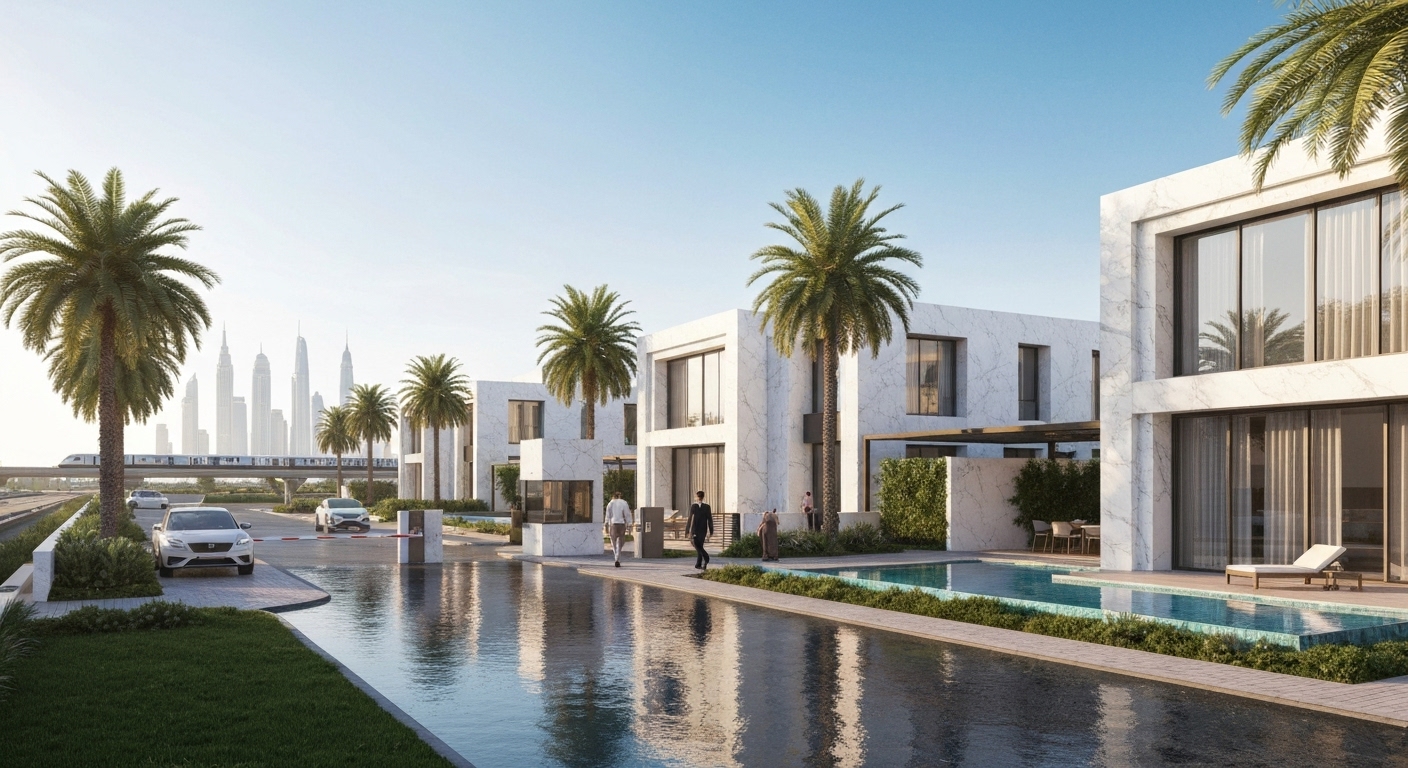Dubai’s property market presents international high-net-worth individuals with compelling investment opportunities through two distinct ownership structures: freehold and leasehold properties. Understanding these fundamental differences is crucial for making strategic investment decisions that align with your wealth management objectives and long-term financial goals.
Understanding Freehold and Leasehold in Dubai: The Core Distinctions for Global Investors
Freehold ownership in Dubai grants international investors complete and permanent ownership rights over both the property and the underlying land. This ownership structure provides security equivalent to property ownership in major global markets, with the added benefit of 100% tax-free income and capital appreciation.
Leasehold properties, conversely, provide ownership rights for a specified period, typically 99 years, after which ownership reverts to the freeholder. While this structure offers lower entry costs, it presents different strategic considerations for long-term wealth preservation and estate planning.
The regulatory framework governing both ownership types has evolved significantly, providing international investors with enhanced legal protections and streamlined acquisition processes that rival established global property markets.
Benefits and Drawbacks: A Detailed Comparison for HNI Property Portfolios
Freehold properties offer superior advantages for HNI portfolios, including unlimited ownership duration, unrestricted resale rights, and the ability to leverage assets for additional investments. These properties consistently demonstrate stronger capital appreciation potential, with Dubai’s freehold market recording impressive growth rates that outperform many Western metropolitan markets.
The primary drawback of freehold properties lies in higher acquisition costs and more stringent financing requirements. However, for HNIs seeking long-term wealth preservation and multigenerational asset transfer, these initial costs are offset by superior appreciation potential and ownership security.
Leasehold properties present lower entry barriers and reduced initial capital requirements, making them suitable for investors testing Dubai’s market dynamics. However, the diminishing lease periods can impact long-term valuations and resale potential, particularly as properties approach lease expiration.
Strategic Considerations for International HNIs: Investment Horizons, Capital Appreciation, and Rental Yield
Dubai’s property market consistently delivers rental yields ranging between 6-8%, significantly outperforming most Western metropolitan markets. For HNIs focused on income generation, both freehold and leasehold properties can provide attractive returns, though freehold properties typically command higher rental premiums due to their permanence and prestigious locations.
Capital appreciation strategies favor freehold properties, which have demonstrated remarkable resilience and consistent value growth. Properties in key growth zones continue recording impressive capital growth, making them ideal for HNIs seeking long-term wealth accumulation rather than immediate income generation.
The investment horizon significantly influences the optimal choice between ownership structures. HNIs planning holding periods exceeding 20-30 years should prioritize freehold properties, while those seeking shorter-term exposure or market entry points may find leasehold properties more suitable.
Navigating Freehold & Leasehold Areas: Prime Locations and Their Implications for High-Value Assets
Dubai’s premier freehold areas include Business Bay, Dubai Marina, Downtown Dubai, and Dubai Creek Harbour. Business Bay, often compared to Manhattan or Canary Wharf, offers strategic proximity to Downtown Dubai with access to landmarks like Burj Khalifa and Dubai Mall, making it particularly attractive for HNIs seeking prestigious addresses.
Dubai Marina provides established waterfront living with mature infrastructure, while Dubai Creek Harbour represents new luxury waterfront options with significant development potential. These prime locations benefit from Dubai’s ambitious infrastructure developments, including the Blue Line Metro extension currently under construction.
Properties aligned with these transportation improvements show significantly higher demand and projected returns, making location selection crucial for maximizing investment performance in both freehold and leasehold segments.
Legal Framework and Regulatory Nuances: Ensuring Seamless Ownership for International Buyers
Dubai’s regulatory environment provides stability and transparency for international property investments. The legal framework governing freehold ownership has matured significantly, offering protections equivalent to established global markets while maintaining the emirate’s tax advantages.
International buyers benefit from streamlined acquisition processes, with designated freehold areas clearly defined and protected by comprehensive legal structures. The regulatory framework ensures seamless ownership transfer, inheritance rights, and exit strategy execution for HNI investors.
Recent regulatory enhancements have strengthened property rights and simplified the acquisition process, making Dubai increasingly attractive for international wealth diversification strategies.
Making the Right Choice: Tailored Advice for International HNIs in Dubai’s Property Market
For international HNIs, freehold properties represent the optimal choice for long-term wealth preservation and portfolio diversification. The combination of permanent ownership rights, tax-free income, strong capital appreciation potential, and access to prime locations creates compelling value propositions for sophisticated investors.
The decision between freehold and leasehold ultimately depends on investment objectives, holding periods, and portfolio strategy. HNIs seeking to establish a permanent presence in Dubai while building multigenerational wealth should prioritize freehold properties in prime locations.
Dubai’s continued evolution as a global wealth migration destination, combined with its impressive rental yields and capital appreciation potential, positions both ownership structures as valuable components of international HNI portfolios, with freehold properties offering superior long-term strategic advantages.




